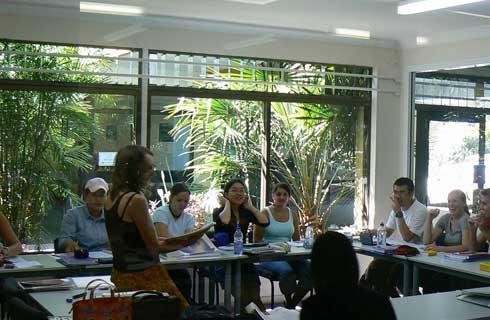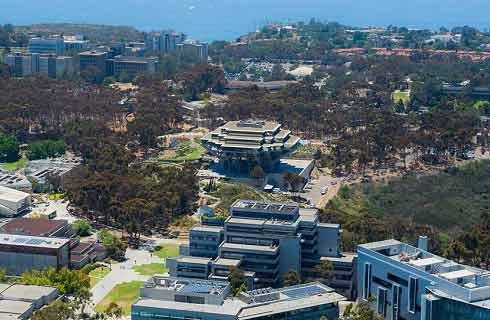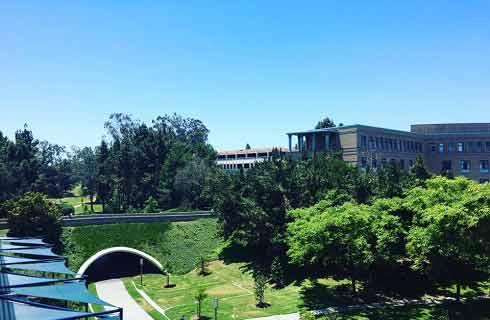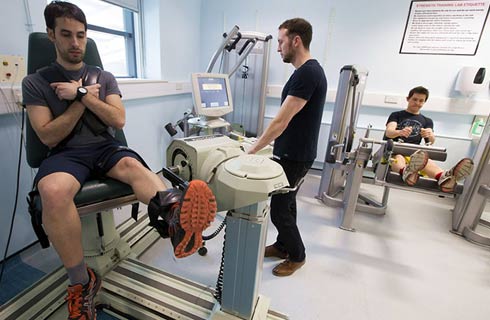
学历文凭
Dual Degree

专业院系
地球科学

开学时间

课程时长

课程学费

国际学生入学条件
IELTS score A minimum result of 7.0 overall and a minimum result of 6.5 in each band
TOEFL - IBT score A minimum result of 96 overall including a minimum result of 20 in Reading, Listening and Speaking and 22 in Writing
A secondary education qualification such as the NSW Higher School Certificate (including national and international equivalents), OR approved higher education study, including approved preparation courses.
IDP—雅思考试联合主办方

雅思考试总分
7.0
了解更多
- 雅思总分:7
- 托福网考总分:96
- 托福笔试总分:160
- 其他语言考试:Pearsons Test of English - A minimum result of 68 overall and a minimum result of 61 in each band
课程简介
With a solid foundation in science plus a two-year master's degree, the five-year Bachelor of Science and Master of Nutrition and Dietetics provides the training you need to launch straight into a career in nutrition and dietetics. For the first time ever, there are more overfed people in the world than underfed people. Statistics such as these are driving our need to train professionals who can help create healthier communities. Your degree will give you access to eminent dietitians and scientists at the cutting edge of dietetics, nutrition and medical research and practice. Join the most highly regarded and longest running program in nutrition and dietetics in Australia (50 years in 2017). Our program is research-driven to ensure you gain exposure to the latest developments and advances in evidence-based dietetics, the science of nutrition, and community and public health nutrition. Our nutrition science course is distinct among Australian universities: we offer a strong life sciences approach, allowing you to pursue postgraduate research in nutrition or diversify to include specialisations in both human and animal nutrition. During the Bachelor of Science, you will study biochemistry, molecular biology and human physiology, which are necessary prerequisites for the Master of Nutrition and Dietetics. You will also complete a major in nutrition science. In the Master of Nutrition and Dietetics, your first year will consist of a series of lectures, tutorials and practical classes introducing you to nutritional science, clinical nutrition and dietetics, public health nutrition and more. In your second year, you will participate in hands-on clinical training, and complete a nutrition research project. You will graduate with a solid knowledge of nutritional science and the expertise to pursue a career as a dietitian in a range of professional settings, in nutrition and nutritional research, and other health-related disciplines.<br><br>Soil and water security are major human existential challenges to the planet and more so in Australia, being the driest continent with highly weathered soils. The Soil Science and Hydrology major provides students with training in three key areas, soil, water and climate, and their links with functional, resilient and productive ecosystems. Soil, water and climate define the physical constraints to ecosystems, and the interpretation of these along with their costs and benefits supports the development of policy and sustainable management strategies. This knowledge will help secure our soil and water resources to maintain healthy, functional and productive ecosystems. We will explore the complex interaction between soil, water and climate, and the way we manage our landscapes. Ecosystems are considered across paddock to catchment scales and include all sectors from agriculture to forestry to mining to nature reserves. This major has a strong emphasis on field-based learning through field schools and emphasis on field measurement and modelling through analysis of non-spatial and spatial data. Working with case studies and projects, you will identify and analyse real-world problems with the aim of identifying options to maintain the functionality of these interrelated systems. Students will develop generic skills in GIS, laboratory and data analysis that will enable students to contribute to water and soil security.<br><br>Soil scientists are employed in a wide range of occupations in the public and private sector, working in basic and applied research in land and soil management. Students who have graduated with a soil science major are employed in state departments of agriculture, the CSIRO, the Department of Environment, Climate Change and Water, Sydney Water, the Department of Planning, chemical companies, land care groups, and in the private sector in environmental consultancies.
相关申请

预科

奖学金

实习机会

在校学习

跨境学习

校园授课-线上开始

在线/远程学习
学校排名
世界排名
60
数据源:泰晤士高等教育世界大学排名
关于悉尼大学

位于澳大利亚首都的悉尼大学是举世闻名的机构,一直名列世界前20名大学之列(2024年QS世界大学排名)。在2022年QS毕业生就业能力排名中,悉尼大学的毕业生也位居澳大利亚第一和世界第四。来自世界各地的学生进行本科和研究生水平的学习。学生可以在澳大利亚最广泛的课程和学科中选择。该大学提供超过400个学习领域供学生选择,大学5门学科位居世界前十名,另外还有28门学科位居世界前50名(2022年QS世界大学学科排名)。通过实习和工作经验以及通过大学海外项目进行国际交换(包含在学位内的可选项目),从而增加了学生的就业机会。学生将在支持和启发的环境中学习和发展,大学会提供给学生大量的服务,这包括学术和专业支持,残疾服务,保密咨询服务,健康服务还有财务援助办公室提供服务。学生还可以参加由悉尼大学学生会(USU)运营的250多个校园俱乐部和社团,从体育运动到文化团体应有尽有。校园内有许多可供学生使用的设施,其中包括带奥林匹克规格温水游泳池的健身室和攀岩中心。此外,还有美术馆、博物馆、咖啡馆、餐厅和酒吧供学生休闲。学生还可以使用南半球最大的学术图书馆。悉尼是世界上最优秀的城市,根据《经济学人》2021年安全城市指数显示,悉尼被评为第四大最安全的居住地,当地的学生体验得以丰富和提升。
在线提交申请
请详细填写您的申请材料

本校相关课程






其他相关课程

利兹大学


昆士兰大学


昆士兰大学


Study Group学习集团(英国)


伦敦大学皇家霍洛威学院


利兹大学

热点资讯
成功故事
















